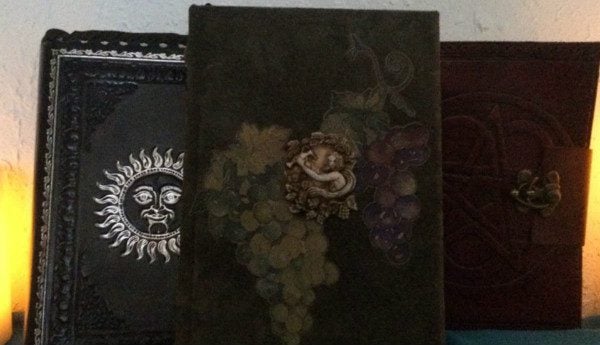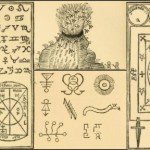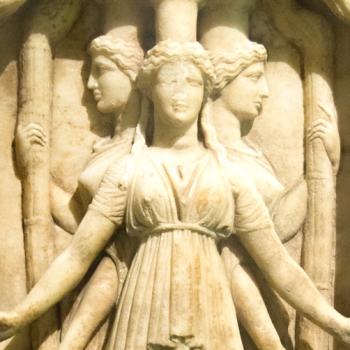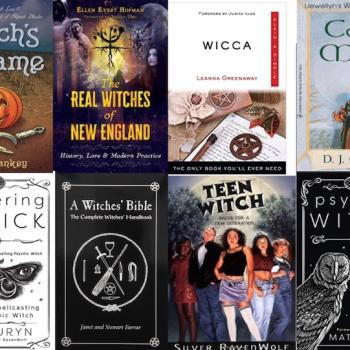There’s an individual who lives near me who loves to talk about his hidden knowledge of Witchcraft history. In his telling Wiccan-Witchcraft has a truly ancient lineage and can be traced back to ancient Hellenic Paganisms (not the modern day re-constructions, but the thing being done 2500 years ago). To say that I’m skeptical of such claims is an understatement. This individual and I have access to many of the same research materials, and while I certainly don’t know everyone in the Pagan world, I think that if there was any real evidence for such a thing someone else would have told me about it.

People can believe whatever they want, but I find such proclamations problematic for a couple of reasons:
1. They marginalize our actual past. So what if Wicca is not 2000 years or old or a genuine ancient pagan survival? I think it’s history is still pretty grand, stretching far back into the Western Magical Tradition and into more contemporary sources like Co-Masonry and Rosicrucianism. Gardner’s “maybe it happened maybe it didn’t” alleged initiation in 1939 adds just enough mystery to the whole package to provide it with a suitable level of intrigue. (Most every religion has some level of intrigue, ours is just a little less supernatural than coming back from the dead!).
Cunning-Craft, Freemasonry, Grimoires, Theosophy, Romantic Poetry . . . . those are all pretty awesome things, I don’t see why they need to be embellished with anything else. If those aren’t fore-mothers and fore-fathers enough to be proud of you are one hard to satisfy cookie. Crazy lineages back to Plato imply that these building blocks just weren’t good enough.
2. They always rely on evidence that we are not allowed to see. If someone wants to make a grand proclamation that’s going to change the history of Modern-Witchcraft they’ve got to be able to back it up with something besides “I can’t show you.” I get it if something is oathbound or whatever, or is a priceless family heirloom. Maybe there’s a very legitimate reason for not showing a particular something. However talking about it tends to break an old adage found in Witchcraft . . . .
3. To keep silent. To keep silent is seriously a thing in many Witchcraft traditions, but it seems to be a concept a lot of people have trouble understanding today. “To keep silent” is about more than just not revealing the names of the people one practices with, it’s an instruction to keep quite about a whole host of things, including what you do in ritual, what’s in your Book of Shadows, and most certainly about any secret hidden history one has squirreled away. No scholar has ever won an argument by saying “I don’t have any evidence to show you, but trust me anyways.” That’s just not how it works.

If you own a 400 year old book detailing your family’s Witchcraft practice that goes all the way back to ancient Celtic society it most likely still survives because the people in your family over the centuries were able “to keep silent.” Talking about it in 2017 sort of violates that 400 years of trust that’s been handed down, doesn’t it? Besides, when someone can’t show you their work it just seems a little dubious. And a 400 year old Witch-book with information going back to a truly pagan antiquity would just about rewrite modern history! It’s something that would be in scholarly journals, on the evening news, and on the bestseller lists. It’s not the kind of thing you’d only read about on a Facebook group. (And if you are going to talk about it, why would you talk about it without showing it to anyone?)
The two examples I’ve written about thus far don’t necessarily mean that the people making those claims are liars. Occult history, especially Witchcraft history, is very subjective. While I don’t think the Witchcraft of Gerald Gardner reaches back to the Hellenic Period, there’s nothing to imply that it couldn’t have been inspired by something Greek. Gardner (and his initiators*) were intelligent, well-read people with varying interests. The problem with all those thousands of years of history has more to do with the “unbroken chain of Witchcraft” thing than the idea being there.
Instead of an idea being carried on through the generations perhaps someone in the modern age stumbled across an idea and then put it into the context of Witchcraft? I read history to be inspired by it, so why not let it inspire? And just because an idea was passed down for generations doesn’t mean that idea was always thought of in the context of Witchcraft. Ideas are often adaptable, and can fit into a vast array of world-views.

In addition someone could very well have a four hundred year old book with magickal spells in it. Such books certainly do exist, and are sometimes handed down among families. The problem is that no one 400 years ago keeping such a book would have thought of it as Witchcraft. And any spells in it would most likely reflect a Christian world-view since most everyone during that period in the English speaking world was a Christian (with a few exceptions). To us, such books very much look like Witchcraft, but that’s not what they were to the individuals who kept them.
And even if they did use the word “Witchcraft” to some small degree in those books, it’s not a type of Witchcraft many of us today would recognize. There would be no Goddess and no Horned God. Such ideas didn’t really take hold until the late Nineteenth and early Twentieth Centuries. Just because it’s Witchcraft to us doesn’t mean it’s fair to apply that level retroactively. (If anyone was seriously worshipping the Devi 400 years ago they would not have been stupid enough to write about it in a book either! It would mean a quick trip to the gallows.)
Our history is complex and if you’ve got a secret unicorn in your backyard it’s probably better not to talk about it unless you are prepared to let everyone else see it. On the other hand we shouldn’t be too quick to dismiss everything out of hand. Magickal ideas are remarkably resilient, and while they may not be Witchcraft, they most certainly have value. Let’s just not turn them into something they aren’t.
*I believe Gardner was initiated into something, though that something was probably not centuries old.

















